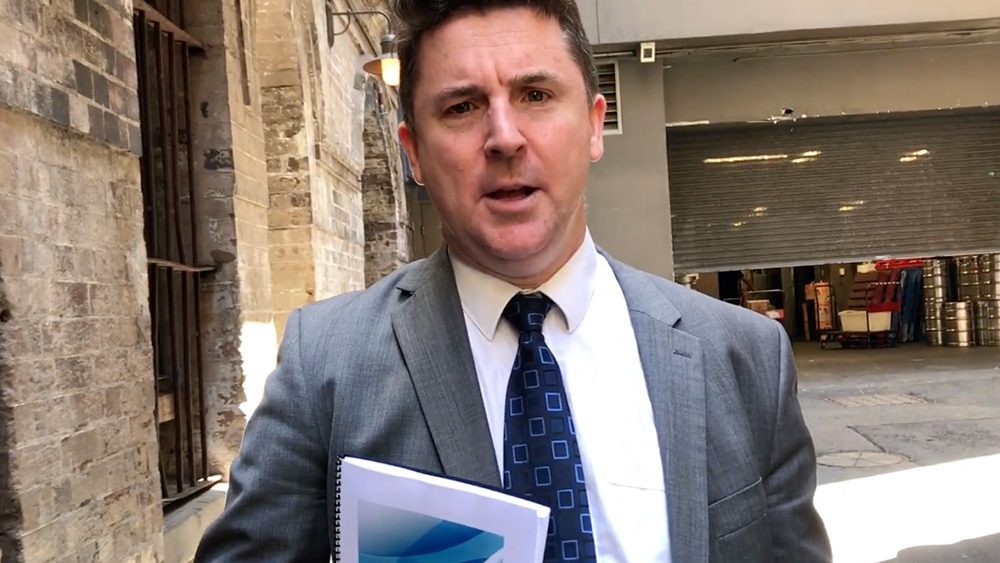Churches unite to propose Religious Freedom Act
Major submission to Ruddock panel calls for a new legal “right”
A wide range of Evangelical and Pentecostal Christian churches have spoken with one voice to the Ruddock panel on religious freedom, whose call for submissions closed today. They have received 13,500 submissions: “I think it is safe to say that people are concerned about religious freedom,” says Michael Kellahan, executive director of Freedom for Faith (FFF), a Christian legal think tank.
The federal government has set up an expert panel, led by Phillip Ruddock (formerly called the ‘Father of the House’ for his long service as an MP and cabinet minister) to:
- Consider the intersections between the enjoyment of the freedom of religion and other human rights,
- Have regard to any previous or ongoing reviews or inquiries that it considers relevant, and
- Consult as widely as it considers necessary.
“The freedom to select is an existential issue for faith communities of all kinds.” – Freedom for Faith
Despite a tight deadline, Freedom for Faith has put together a substantial response, written by Patrick Parkinson, a Sydney University law professor. Perhaps even more impressively, FFF has drawn together a wide spectrum of churches.
The Freedom for Faith submission has been endorsed by Australian Christian Churches (which includes Hillsong), the Baptists, the Presbyterian Church of Australia, the Seventh-Day Adventist Church, the Anglican Church Diocese of Sydney, the Barnabas Fund, the Assembly of Confessing Congregations within the Uniting Church, the Christian Reformed Churches of Australia, Free Reformed Churches of Australia, EV Church, Church Communities Australia and the Sydney Chinese Christian Churches Association.
FFF paints a dire picture concerning the lack of protection for Christianity and other religions in Australia.
Parkinson writes in the submission: “There is almost no legal protection for freedom of religion in Australia beyond a provision in the Constitution which applies only to Commonwealth law, a provision in the Tasmanian Constitution, and exceptions and exemptions in anti-discrimination laws. There is also little protection for the inter-related civic freedoms of conscience, speech, assembly and association.”
FFF proposes a major reform – a Religious Freedom Act – which would “establish religious freedom as a right rather than a grudging concession.”
The new act would also provide clear limitations to religious freedom, including for public safety (preventing terrorism, for example) and the protection of children.
Religion would become a “protected attribute” rather than the subject of exemptions in the current anti-discrimination laws. However religious schools, charities and other organisations should be free to select staff “who adhere to their faith and values.”
“The freedom to select is an existential issue for faith communities of all kinds,” FFF says. “If a Christian school cannot advertise for staff who hold Christian beliefs, then within a fairly short period, the staff profile will be indistinguishable from the state school next door.”
FFF has taken a strong line on employment …
The FFF submission rejects the “inherent requirements test” used in some current anti-discrimation legislation as inadequate for protecting the religious character of schools and charities. In Victoria, for example, this has meant schools have had to seek permission to include religious criteria in a job ad.
Chapel is not enough: “There might be a more clearly defined Christian element to the curriculum in a Christian school, for example by the inclusion of a compulsory Christian studies class and chapel services from time to time, but these are relatively peripheral nods to the important of faith.”
FFF has taken a strong line on employment which would give schools for example the right to select ALL their staff according to religious criteria.
A second key recommendation is the appointment of a National Religious Freedom Commissioner who will “bring the voices of neglected minorities into the national conversation” on diversity. They would sit alongside the other members of the Australian Human Rights Commission (for example, the Aboriginal and Torres Strait Islander Social Justice Commissioner and the Children’s Commissioner).
One key “right” missing from the FFF submission is the “gay wedding cake” example
FFF recommends that the law should be changed so workplaces would have a duty to provide “reasonable accommodation” for religious belief. For example, allowing the wearing of a hijab or turban, or there being reasonable requests in rostering, such as allowing observant Jews and Seventh Day Adventists to have their Sabbaths off. FFF wants laws to be enacted to protect individuals and organisations with traditional views on marriage from discrimination.
One issue left over from the same sex marriage debate is the fate of marriage celebrants who are not “religious ministers” as defined by the act. Some pastors are in full-time secular employment and they may not hold a formal qualification. FFF suggests a simple fix to include “a person on a position of pastoral leadership a religious congregation, body or organisation” in an expanded definition of religious marriage celebrant.
One key “right” missing from the FFF submission is the “gay wedding cake” example, that would allow a commercial business to refuse to provide services to LGBT weddings. The FFF submission raises the issue of some chapels, for example in schools, not granted exemption in the bill.
Eternity understands that some other submissions to the Ruddock panel may cover the cake issue.



